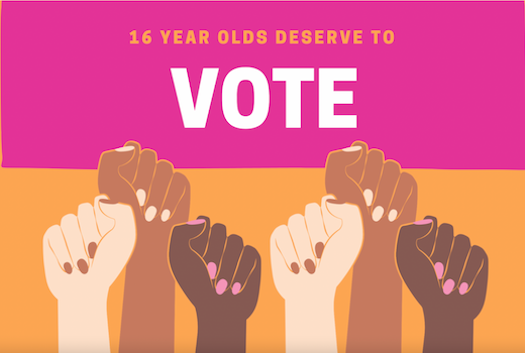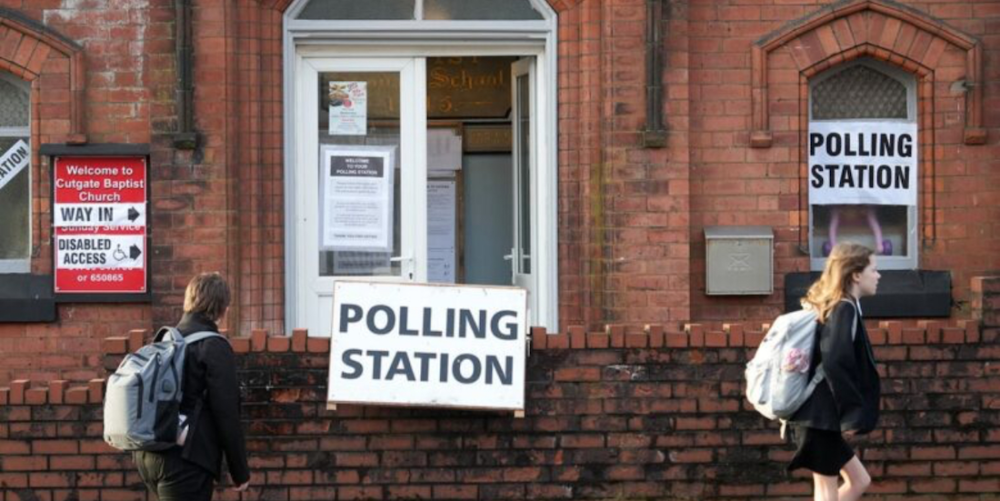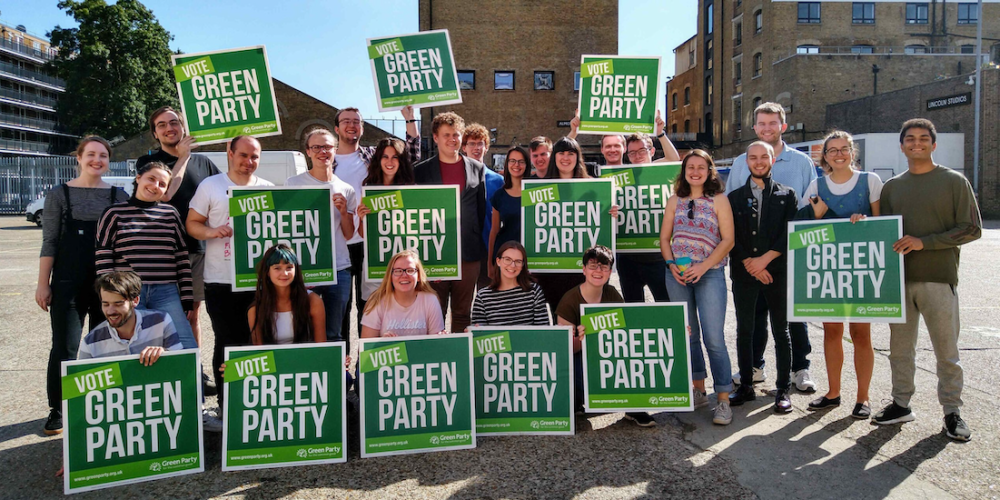
The U.K. joins select nations expanding suffrage as youth political engagement becomes central democratic priority
New York, N.Y. — The British government announced this week it planned to give 16 and 17-year-olds the right to vote in all U.K. elections as part of seismic changes to modernize U.K. democracy, marking the most significant expansion of suffrage since the voting age was reduced from 21 to 18 in 1969.

The proposal to allow 16- and 17-year-olds the right to vote in general elections represents the biggest change to the electorate since the voting age was reduced from 21 to 18 in 1969.
This historic shift makes the United Kingdom one of the first major European democracies to embrace such a comprehensive reduction in voting age requirements, potentially adding approximately 1.4 million new voters to the electoral rolls.
The announcement comes as the U.K.’s general election of 2024 voter turnout was estimated to have been 60%, the lowest turnout since 2001, raising questions about democratic engagement and the role younger voters might play in revitalizing British democracy.
A Historic Precedent in Democratic Reform
The Representation of the People Act of 1969 established the U.K. as a pioneer in voting rights expansion when it became the first major democracy to lower the voting age from 21 to 18. This groundbreaking decision influenced numerous countries throughout the 1970s to follow suit, establishing 18 as the international standard for voting eligibility.
The current reform echoes that historical precedent, with the United Kingdom poised to become one of the first European countries to lower the voting age to 16 in all national elections. The Labour Party government, elected in July 2024, had campaigned on this promise as part of what officials describe as efforts to “future-proof” British democracy.
Unlike driving privileges, which remain restricted to those 17 and older, voting rights will now extend to citizens who may not yet hold a driver’s license but are deemed capable of making informed electoral decisions. This creates an interesting paradox where teenagers can help choose the nation’s leadership before they can legally operate a motor vehicle.

Young Voter Political Preferences and Participation
Understanding where 16 and 17-year-olds fit within Britain’s political spectrum requires examining current voting patterns among the youngest eligible demographic. In 2024, the political party that 18 to 24 year-old’s in Great Britain would be most likely to vote for in the next general election was the Labour Party, at 47%, while among those over 65, the Conservative Party was the most popular with 40%.
Data suggests that extending voting rights to 16 and 17-year-olds could significantly benefit
progressive parties, particularly Labour, Liberal Democrats, and potentially the Green Party.
Young voters traditionally favor policies addressing climate change, housing affordability,
and social justice issues that align more closely with left-leaning political platforms.
The general criticism is that 16-year-olds are not mature enough to participate in elections, both in terms of brain development and political knowledge. It’s also a politically touchy subject because of concerns that younger voters will support liberal parties over conservatives. This concern reflects broader anxieties within Conservative circles about potentially losing electoral ground to parties that resonate more strongly with younger demographics.

Implementation Challenges and Timeline
The Labour government faces significant logistical challenges in implementing this reform before the next general election, expected by 2029. Electoral registration systems must be updated, educational institutions will need to coordinate voter registration drives, and public awareness campaigns must reach newly eligible citizens.
Electoral Commission officials will need to develop age-appropriate voter education materials and coordinate with schools to ensure 16 and 17-year-olds understand their rights and responsibilities. The commission’s experience with previous electoral reforms will prove invaluable in managing this unprecedented expansion of the franchise.
The reform also raises questions about parental consent and whether minors can register to vote independently. Current proposals suggest that 16 and 17-year-olds will have full autonomy over their electoral participation, treating voting rights as fundamental civil liberties rather than privileges requiring parental approval.
International Context and Future Implications
The United Kingdom is to lower its voting age in general elections from 18 to 16, giving the country one of the lowest voting ages in the world. This positions Britain alongside Scotland (which already allows 16-year-olds to vote in local and Scottish Parliament elections), Austria, and several other progressive democracies that have embraced expanded youth suffrage.
The decision may influence other European Union member states and democracies worldwide to reconsider their own voting age requirements. Canada, Australia, and various American states have ongoing debates about similar reforms, potentially creating a domino effect similar to the 1970s movement toward 18-year-old voting rights.
The success or failure of Britain’s experiment will be closely monitored by international observers, political scientists, and democracy advocates worldwide. If younger voters demonstrate high engagement levels and thoughtful electoral participation, it could accelerate similar reforms globally. Conversely, if the expansion fails to meaningfully increase turnout or improve democratic outcomes, it might dampen enthusiasm for such changes elsewhere.
Democracy’s Evolution Continues
Britain’s decision to lower the voting age to 16 represents more than a policy change; it embodies a fundamental belief in young people’s capacity to contribute meaningfully to democratic governance. As the nation grapples with declining voter turnout and growing political disengagement, this reform offers hope that expanding participation might revitalize the democratic process.
The coming years will test whether 16 and 17-year-olds embrace their new electoral responsibilities and whether their participation can help address the broader challenges facing British democracy. Success could establish a new international standard for youth political participation, while failure might reinforce arguments for maintaining traditional age restrictions.
Regardless of outcomes, this historic expansion of voting rights demonstrates democracy’s continued evolution and adaptation to changing social expectations about youth civic capacity.
Audio Summary (75 words)
Britain announced plans to lower the voting age from 18 to 16 for all elections, the biggest electoral change since 1969. This makes the U.K. among the first European nations with such expansive youth voting rights. The reform aims to address declining voter turnout, which fell to 60% in 2024. Young voters traditionally favor progressive parties, raising political implications. The change requires legislative approval and implementation before the next election, potentially adding 1.4 million new voters.
#UKVotingAge #BritishDemocracy #YouthVote #ElectoralReform
#VoterTurnout #PoliticalParticipation #DemocraticRights
TAGS: voting rights, UK elections, youth participation, electoral reform, British politics,
voter turnout, democracy, political engagement, Labour Party, suffrage expansion
